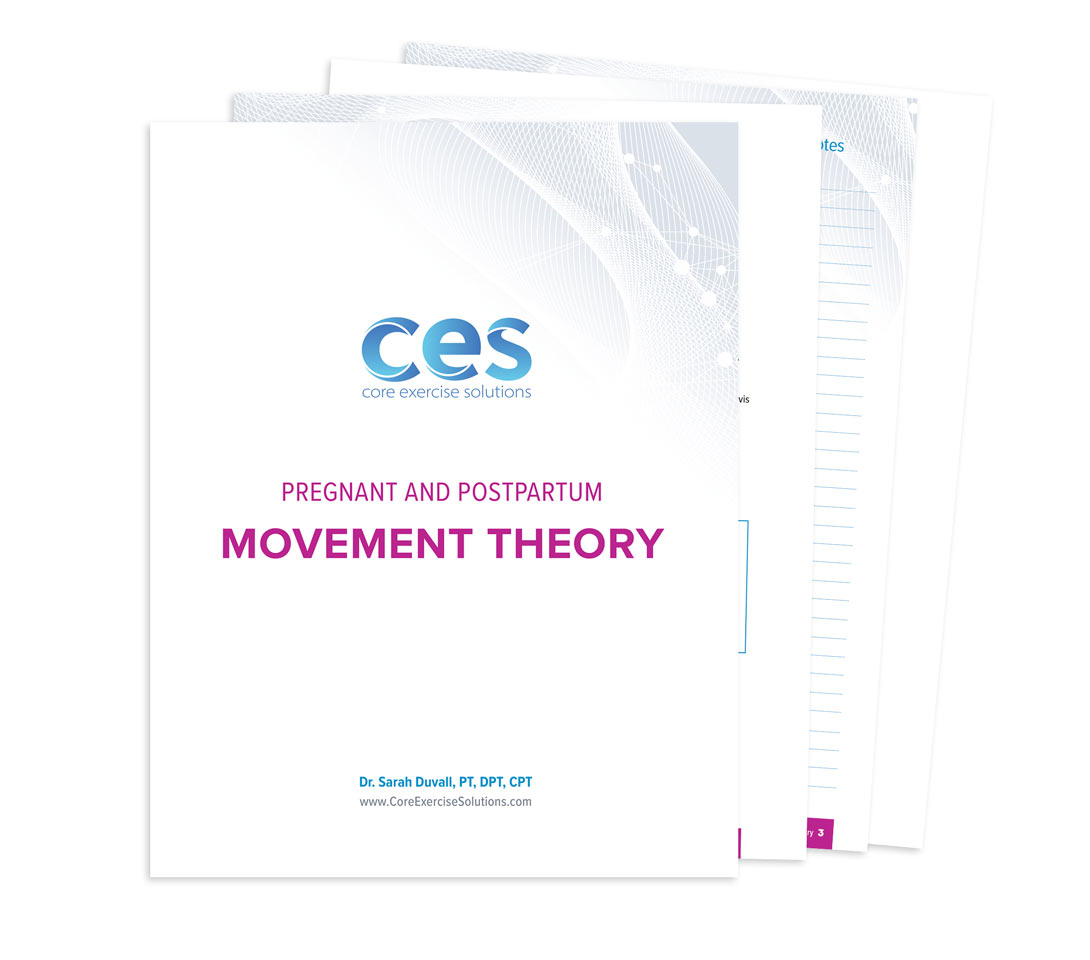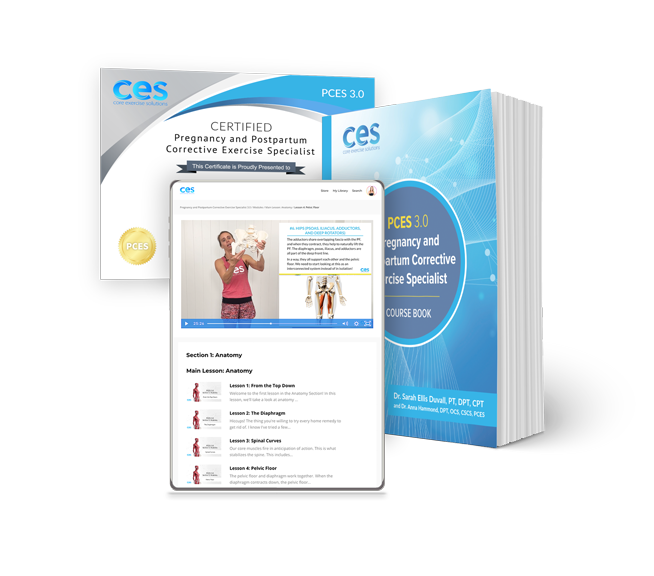Pregnant and Postpartum Movement Theory Every Professional Should Know
Part 3: Pelvic Alignment
Having trouble with the video? Click here
Welcome to Part 3:
Pelvic Alignment
In today's video, you'll learn:
How can the PCES Certification help me?
The PCES Certification is designed to:
Give you full confidence in helping your pregnant and postpartum clients
Demystify the common and not-so-common core and pelvic floor issues associated with child-birth, like diastasis recti
Teach you how to help women of any age get into high intensity exercise while tackling issues that arise, like leaking and pelvic organ prolapse
Equip you with skills and knowledge on the whole body system you can apply immediately
"This course provides a wealth of information on post-partum recovery delivered in a very thoughtful and well-organized series of lectures. Dr. Sarah is thorough, engaging, funny, and her case studies and how-to videos are brilliant and clear. As a yoga therapist, I am especially thrilled with the emphasis on breathing as a primary tool for recovery."
Lisa Sack, Certified Yoga Therapist
Have any questions?
Lim, H.S., Roh, S., & Lee, S. (2013). The Relationship between Pelvic Tilt Angle and Disability Associated with Low Back Pain. Journal of Physical Therapy Science, 25, 65-68.
Kim WD, Shin D. Effects of Pelvic-Tilt Imbalance on Disability, Muscle Performance, and Range of Motion in Office Workers with Non-Specific Low-Back Pain. Healthcare (Basel). 2023 Mar 20;11(6):893.
Salt E, Wiggins AT, Rayens MK, Hooker Q, Shojaei I, Bazrgari B. The relationship between indicators of lumbo-pelvic coordination and pain, disability, pain catastrophizing and depression in patients presenting with non-chronic low back pain. Ergonomics. 2020 Jun;63(6):724-734.
Suits WH. Clinical Measures of Pelvic Tilt in Physical Therapy. Int J Sports Phys Ther. 2021 Oct 1;16(5):1366-1375.
Chun SW, Lim CY, Kim K, Hwang J, Chung SG. The relationships between low back pain and lumbar lordosis: a systematic review and meta-analysis. Spine J. 2017;17(8):1180-1191.
Ozudogru Celik T, Yalcin E, Keskin HL, Koymen I, Koca N, Demir A. The relationship between low back pain, pelvic tilt, and lumbar lordosis with urinary incontinence using the DIERS formetric 4D motion imaging system. Int Urogynecol J. 2024;35(1):189-198.




